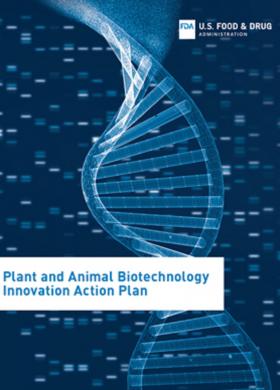FDA’s Plant and Animal Biotechnology Innovation Action Plan
Scientific advancements such as genome editing have led to the ability to more efficiently and precisely alter the genomes of plants and animals to produce desired traits. Genome editing in plants and animals has a broad range of potential applications in areas including food (for humans and animals), agriculture, and health.
The U.S. Food and Drug Administration is pleased to share the Plant and Animal Biotechnology Innovation Action Plan. This plan provides an overview of priorities the FDA will pursue to support innovation in plant and animal biotechnology and to advance the agency’s public health mission.
This Action Plan aims to implement and clarify risk-based policies with the goals of ensuring that developers know what they need to do to efficiently bring a product to market, and that consumers and the public understand how the FDA’s regulatory system helps ensure the safety of such products. The Action Plan identifies concrete priorities in three key areas:
- Advancing public health by promoting innovation
- Strengthening public outreach and communication
- Increasing engagement with domestic and international partners
Taken together, these priorities are intended to ensure the safety of plant and animal biotechnology products, foster continued public confidence in the FDA’s regulation of these products, and avoid unnecessary barriers to future innovation consistent with the FDA’s mission to protect and promote public health.
As a first step in the implementation of this Action Plan, FDA is announcing:
- Public Webinar on Genome Editing in Animals: The webinar will focus primarily on the current science, promising uses of this technology in animals, and the potential risks.
- Veterinary Innovation Program (VIP): A new pilot program, the VIP is intended to facilitate advancements in development of innovative animal products by providing greater certainty in the regulatory process, encouraging development and research, and supporting an efficient and predictable pathway to approval.


